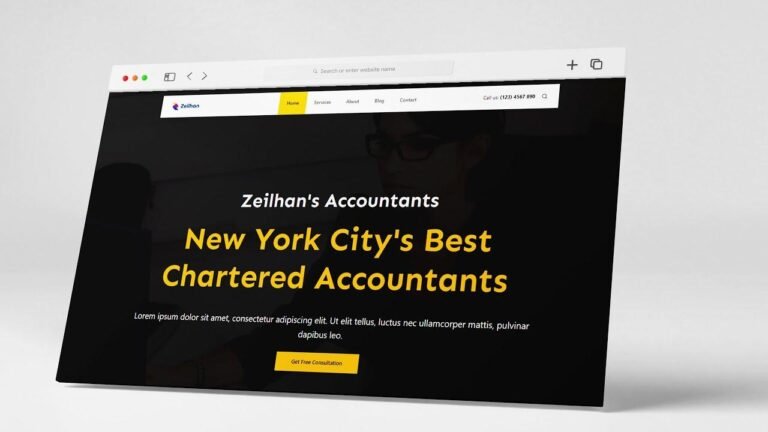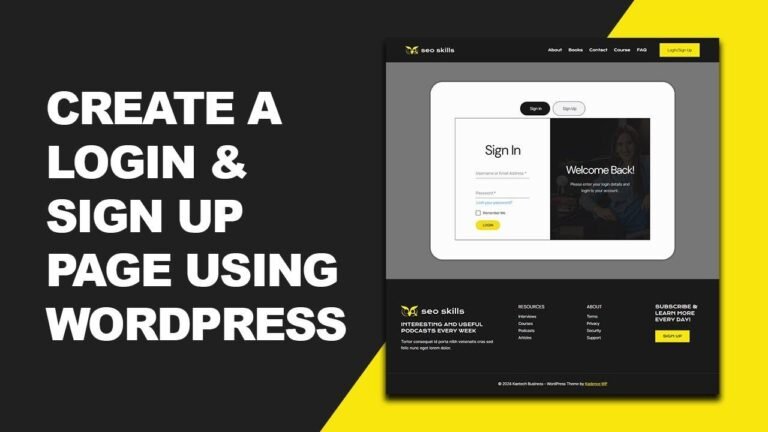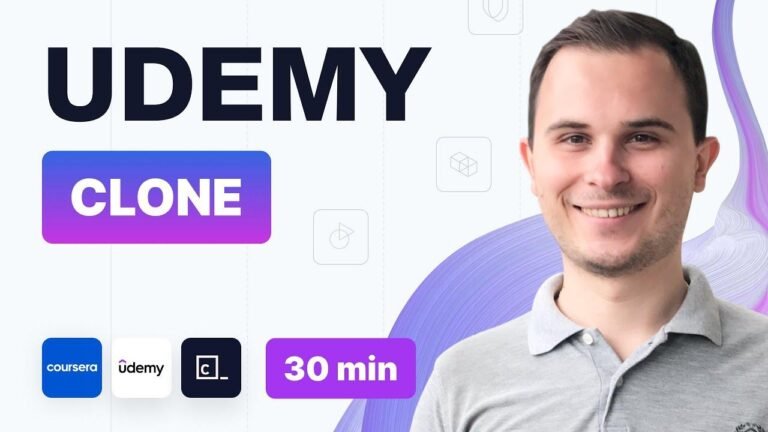The web developer’s roadmap is full of myths and confusion. The key is to learn the fundamentals of HTML, CSS, and JavaScript, then start building real projects. You don’t need to know everything in the tech world. Focus on practical experience, not tutorials. Soft skills and project experience matter more than degrees. Build, execute, and communicate to get ahead in the game. 🚀
:mag_right: Navigating the Web Development Path to Success
Takeaways
| Key Points | Details |
|---|---|
| Perma Students | Avoid becoming a perpetual student and focus on the fundamentals |
| Real Projects | Emphasize practical learning through hands-on real-world projects |
| Skills Development | Highlight the importance of continuous learning and professional growth |
| Job Search | Strategies for securing your first web development job |
| Career Advancement | The importance of soft skills and diverse technical capabilities |
| Degree vs Experience | Insights on the evolving role of formal education in the industry |
Hey guys, how you doing? Steph here! In this video, I’m going to provide you with a comprehensive roadmap for web developers. There are countless roadmaps out there, and I want to address the misconceptions that often discourage aspiring developers. The key takeaway here is that you don’t need to immerse yourself in an overwhelming amount of technology before embarking on your career journey.
:books: Breaking Free from the Perma-Student Trap
One of the common pitfalls of pursuing a career in web development is the abundance of technologies and frameworks listed in roadmaps. Many individuals fall into the trap of continuously learning without practical application, leading to frustration and abandonment of their aspirations. The key is to emphasize the fundamentals and immediately jump into building tangible projects.
Perma-Students Beware Table
| Myth | Reality |
|---|---|
| Endless Learning | Focus on Core Fundamentals |
| Technology Overload | Prioritize Real Projects |
| Tutorial Dependency | Embrace Hands-On Building |
| The Techie’s Paradox | Simplifying the Learning Journey |
Amidst the vast landscape of technologies, it’s crucial to recognize that mastery of every tool is unnecessary. With nearly 30 years of professional experience, I can attest that even as a specialist in Java, I only utilized a fraction of the language. This principle applies broadly across programming languages, suggesting that the core principles and practical projects hold far greater weight during skill development.
:computer: Building the Foundation for Success
The Web Dev Starter Kit Table
| Stage | Focus |
|---|---|
| Step 1 | Learn HTML 5, CSS3, and JavaScript |
| Step 2 | Dive into Modern Website Development |
| Step 3 | Explore Front-End Framework Fundamentals |
| Step 4 | Emphasize Real-World Project Execution |
Upon embarking on the web development journey, mastery of HTML 5, CSS3, and JavaScript forms the foundational trio for crafting contemporary websites. Additionally, touching on front-end frameworks such as Bootstrap and Tailwind can broaden your understanding, but the priority remains in hands-on project execution.
:chart_with_upwards_trend: Accelerating Career Progression
One common dilemma faced by aspiring developers is the catch-22 of job requirements demanding experience. The solution lies in showcasing your capabilities through freelancing projects. These real-world implementations not only demonstrate technical skills but also underscore the importance of communication, organization, and timely delivery.
Navigating the Career Transition Table
| Strategy | Next Steps |
|---|---|
| Freelancing | Building Real-World Projects |
| Soft Skills | Enhancing Communication Capabilities |
| The Learning Curve | Adapting to New Technologies and Languages |
| The Meritocracy | Emphasizing Experience Over Credentials |
Transitioning into a web development career hinges not only on technical proficiency but also on soft skills development. The era of formal qualifications has witnessed a significant shift, with businesses increasingly valuing practical experience over degrees or certifications.
:mortar_board: Rethinking Educational Pathways
In the domain of software development, practical achievements carry more weight than theoretical knowledge. The industry fosters a merit-based ecosystem where competency and tangible results hold paramount significance. Emphasizing this paradigm shift, leading companies such as Google have advocated for skill development programs over traditional degrees.
Adaptive Learning Approach Table
| Focus | Results |
|---|---|
| Wisdom Beyond Years | The Value of Practical Experience |
| Professional Development | Versatility in Technology Application |
| Demonstrable Projects | Intrinsic Superiority Over Formal Credentials |
As we navigate the evolving landscape of web development, it’s pivotal to reimagine the learning-to-employment trajectory. Demonstrable projects, adaptability, and a commitment to ongoing learning will significantly outweigh conventional educational pathways.
:rocket: Soaring Beyond Expectations
In conclusion, success in web development stems from a balanced focus on fundamentals, real-world projects, and practical experiences. Embrace the power of hands-on learning, soft skills development, and agile adaptation to technological shifts, and prepare to excel in the dynamic world of web development.
Key Takeaways
- Prioritize practical projects over perpetual learning.
- Soft skills and real-world projects hold pivotal importance in career progression.
- Adapt to a merit-based ecosystem, emphasizing experience and tangible results.
- Flexibility and continuous learning are the cornerstones of success in web development.
Thank you for joining me on this enlightening journey through the dynamic world of web development. If you’ve found value in this discussion, feel free to share your insights in the comments below. And as always, keep striving for greatness in your development endeavors! 🚀






